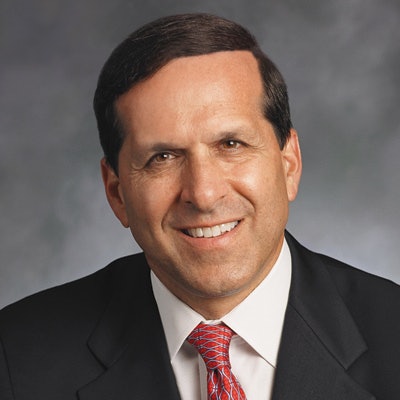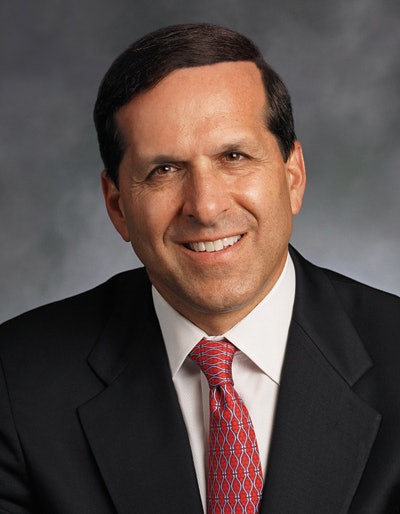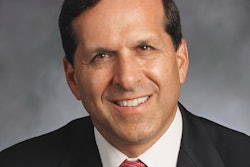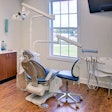
Dr. Roger P. Levin brings you the most thought-provoking topics from the Dental Business Study Clubs, an organization focused on the business of successful dentistry. Each month, Dr. Levin will explore an aspect of the business of dentistry in detail.
Thousands of books, articles, and blogs have been written on the topic of sales that range from the very good (i.e., solid strategies) to the very bad (i.e., complete manipulation and deception). As a dentist, you know that the latter has no place in your practice.
Dentistry is a proud profession characterized by high integrity, and dentists are consistently rated in the top 10 among professional groups that are trusted. Part of the reason for this is the ongoing relationship that we have with our patients. But, make no mistake, selling is as much a part of dentistry as are crowns and implants. And to make selling a successful part of your practice, you must concentrate on the relationships you have with your patients.
What is selling?
 Roger P. Levin, DDS, is the executive founder of the Dental Business Study Clubs.
Roger P. Levin, DDS, is the executive founder of the Dental Business Study Clubs.Until the early part of the 20th century, the word "selling" came with a negative connotation in dentistry. Dentists fooled themselves into thinking that they didn't really "sell" services. They believed that patients somehow magically understood their options and would select. But the truth was that dentists were selling just like everyone else. All businesses must sell their products or services to be successful. Dentistry is no different.
So what are dentists selling? It is very simple. Keeping the best interest of the patient in mind, they communicate and influence patients to accept recommended treatment. But, unlike other businesses, when the patient doesn't accept treatment, it is not only the business (practice) that loses but also the customer (patient).
The reason that selling was viewed negatively is because it is frequently associated with manipulating or deceiving people. Dental sales require high integrity. We have an obligation to give patients all viable options along with our best opinion. And while we aren't obligated to motivate patients to accept treatment, this has now become a large part of the conversation.
It's about relationships
The type of selling that takes place within dental practices relies heavily on relationships. In fact, in my seminars, I explain that one of your highest goals should be to make your patients your friends. Why? Because people like their friends, people trust their friends, and people buy from people they like and trust.
Believe it or not, it actually is that simple. So why isn't every dentist exceptional at case presentation? Why isn't there a higher percentage of cases accepted? Why does case acceptance fall off when fees are over $1,500 in general practices? The answer may be that dentists fool themselves into thinking that their relationships with their patient are better than they really are.
Fooling ourselves
I have heard thousands of dentists and staff members boast about how much their patients love them. They believe this, they are proud of it, and they believe that they've worked hard to achieve it. The only problem is their patients don't really love them.
Their patients like them -- and that's not enough. We have seen numerous practices that lose 15% of their patients per year. Patients will find a new office when their insurance changes, if they can't get the appointment they want, or if they see an advertisement for a better deal. And let's not forget the power of the internet. When patients are online, they can find thousands of "grass is greener" dental practice scenarios.
So are your relationships with your patients as good as you think they are? Let's examine the following questions:
- How well do you know your patients? Do you know their spouse's name? Their children's names? Their occupation? Where they live? If they have a pet? These are the basics that everyone knows about their friends.
- How interested are you in your patients? Most dentists spend their days concentrating extremely hard on providing excellent dentistry. This doesn't leave a lot of brain space for finding out more about your patients and their lives. However, this is what friends do. We encourage dentists to learn one new thing about every patient, every time they enter their office. By simply asking them about themselves, you advance the relationship. They feel how much you care, and you get to know more about them.
- How often do you do anything extra to build a patient relationship? Building a relationship requires spending time doing the little things that can make a difference. Things like sending a text to every new patient within 10 minutes after their appointment, welcoming them to the practice. Or maybe following up with current patients by email or text and highlighting something they said or that was notable during their visit. Some dentists even call their patients in the evening to check on their treatment. These "extras" are rarely done but add up to powerful relationship building.
- Do you know what happens in your practice with your patients when they are not in your chair? Dentists can't spend all their time observing patient relations with hygienists or front desk people. So they don't know whether patients are receiving warm welcomes, offers of assistance, convenient appointments, comprehensive financial options, or friendly goodbyes. However, these are all extremely important components of cultivating great relationships and dentists should encourage their staff to continually make them part of their routine with patients.
The best practices have the best relationships
In Levin Group Data Center's ongoing 30-year study of top 10% performing practices, we have repeatedly observed that top practices have excellent relationships with their patients. You might think this means that they must be low-volume practices where the doctor can spend endless time with each patient. However, this is not the case. We see it at every level of patient volume in top 10% performing practices. Even in very busy preferred provider organization (PPO)-based practices that produced within the top 10%, we see that the doctor and team have an innate ability to build relationships with their patients and continue to advance those relationships over time. We believe many facets contribute to this, including the overall positive environment and the curiosity about patients and their lives. And all of these can be applied in almost any type of practice. There are no exceptions. There are no excuses.
It's all about relationships
Selling is simple because it's all about relationships. The problem comes when practices overestimate the level of relationship that they have with their patients. If you don't know someone's job, children's names, or hobbies, you've probably overestimated the level of your relationship. Dentists should use the questions above as a guide to developing great relationships that will help pave the way toward easy case acceptance. Patients who are your friends will say yes to almost everything they can afford because they like and trust you.
Roger P. Levin, DDS, is the executive founder of the Dental Business Study Clubs. To contact Dr. Levin or to join the 40,000 dental professionals who receive his Practice Production Tip of the Day, visit www.levingroup.com or email [email protected].
The comments and observations expressed herein do not necessarily reflect the opinions of DrBicuspid.com, nor should they be construed as an endorsement or admonishment of any particular idea, vendor, or organization.



















